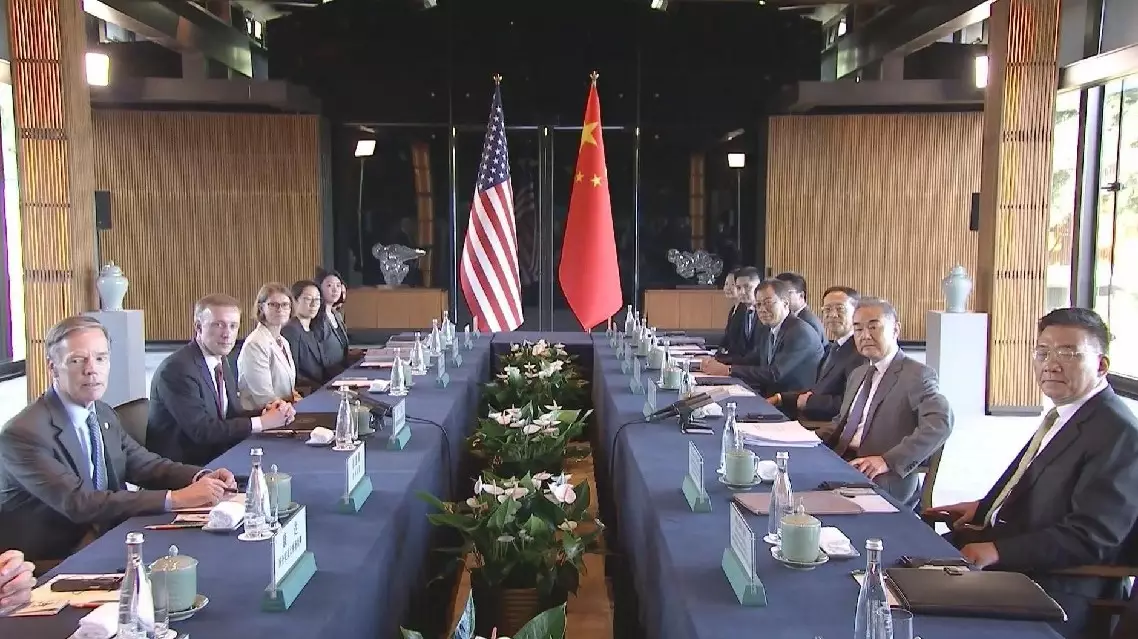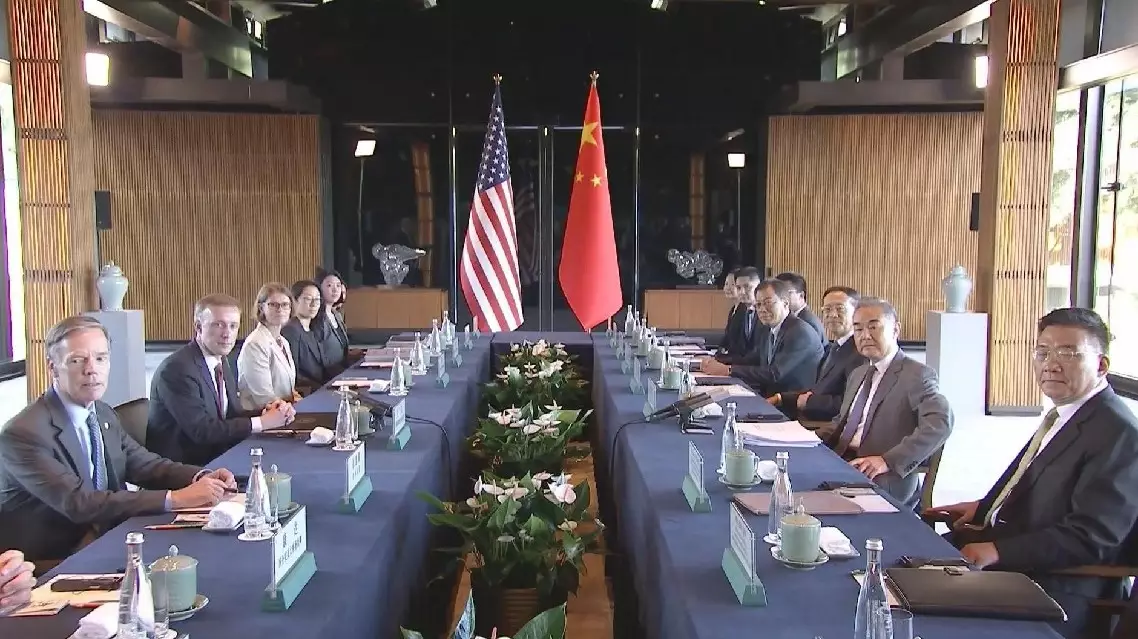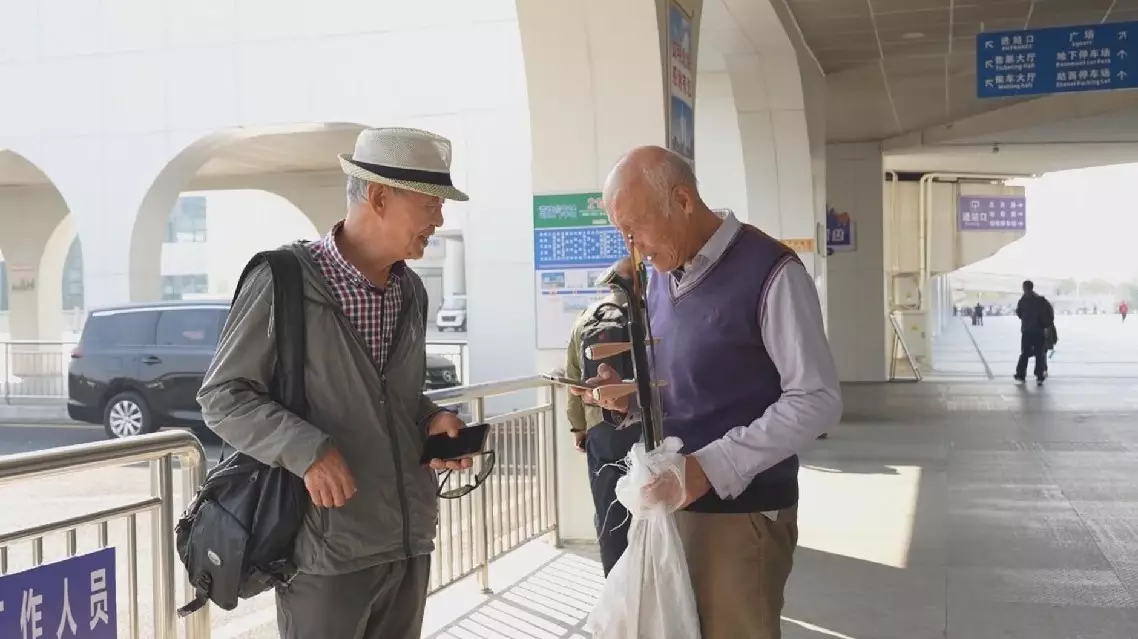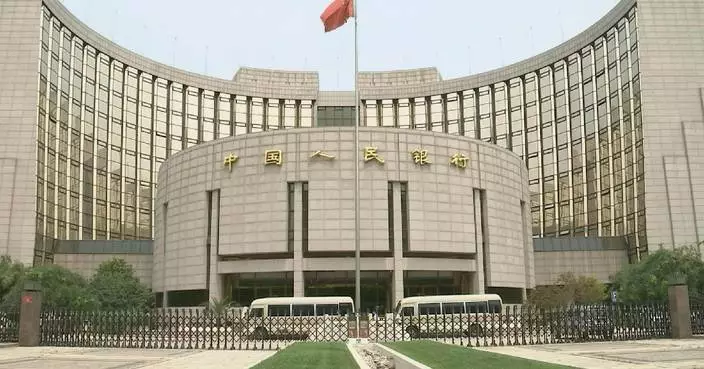Wang Yi, director of the Office of the Central Commission for Foreign Affairs, held a new round of China-U.S. strategic communication with U.S. National Security Advisor Jake Sullivan in Beijing on Tuesday, with the two sides having candid, substantive, and constructive discussions on a range of bilateral, regional, and global issues.
Wang, also a member of the Political Bureau of the Communist Party of China Central Committee, said the relationship between China and the United States has been full of twists and turns in the past few years, adding that experience is worth summarizing and lessons need to be learned to help find the right way for the two major countries to get along with each other.
First, to anchor the correct direction of bilateral relations, the key is to uphold the stewardship of the two presidents. The two sides should uphold mutual respect, peaceful coexistence and win-win cooperation, implement the common understandings reached by the two heads of state and promote the steady, sound and sustainable development of China-U.S. relations.
Second, to avoid conflict and confrontation between China and the United States, the key is to abide by the three joint communiques. The United States should uphold the political foundation for bilateral ties, respect China's sovereignty and territorial integrity, respect China's political system and development path, and respect the legitimate right of the Chinese people to development.
Third, to smooth China-U.S. interactions, the key is to treat each other as equals. Acting from a so-called "position of strength" is not the right way for countries to get along.
Fourth, to promote the steady and long-term development of China-U.S. relations, the key is to cement public support. The two countries should build more bridges and pave more roads for exchanges between the two peoples, rather than place barriers.
Fifth, to coexist peacefully between China and the United States, the key is to form a correct perception. China is committed to enabling the Chinese people to live a better life and to making greater contributions to world peace and development. The United States should neither speculate on China based on its own path, nor project onto China its own poor track record of seeking hegemony when it becomes strong.
Wang stressed that Taiwan is part of China and China must be reunited. "Taiwan independence" is the biggest risk to peace and stability across the Taiwan Strait. The United States should act on its commitment of not supporting "Taiwan independence", abide by the one-China principle and the three Chinese-U.S. joint communiques, stop arming Taiwan, and support China's peaceful reunification.
Wang pointed out that all countries should adopt a common, comprehensive, cooperative and sustainable outlook on global security. One should not pursue its own security at the cost of others' security. National security needs to have clear boundaries, especially in the economic field, which needs to be scientifically defined. The United States should stop suppressing China in fields of economy, trade, technology and stop undermining China's legitimate interests. Using "overcapacity" as a pretext to practice protectionism will only harm global green development and affect world economic growth.
He noted China firmly safeguards its territorial sovereignty and maritime rights and interests over Nanhai Zhudao, and upholds the sanctity and effectiveness of the Declaration on the Conduct of Parties in the South China Sea. The United States must not undermine China's sovereignty and territorial integrity in the name of bilateral treaties, and must not support or connive at the Philippines' infringements.
Sullivan said that there are differences and competitions between the United States and China, as well as many areas that need cooperation. He agreed that each other should be treated equally, and competition should be healthy and fair. The United States has no intention of decoupling from China, he said.
He said the United States adheres to the one-China policy and does not support "Taiwan independence", "two Chinas" or "one China, one Taiwan". The United States and China will coexist peacefully on this planet for a long time, and the U.S. policy goal is to find a way to make the U.S.-China relationship sustainable. The United States is willing to continue to maintain strategic communication with China to enhance mutual understanding and reduce misunderstandings and misjudgments, he said.
The two sides also exchanged views on Ukraine, the Middle East and the Korean Peninsula. Wang said that China remains committed to promoting peace talks and seeking a political solution to the Ukrainian crisis, and will continue to do the right thing. The United States should neither shift the responsibility to China nor abuse illegal unilateral sanctions, he said.
They discussed a new round of interaction between the two countries' heads of state in the near future during their meeting in Beijing.
The two sides agreed to continue to implement the important consensus reached at the San Francisco meeting between the two heads of state, maintain high-level exchanges and communication at all levels, and continue to carry out cooperation in drug control, law enforcement, repatriation of illegal immigrants, and climate change mitigation.
Wang and Sullivan also agreed to institutional arrangements for holding a video call between theater leaders of the two militaries as well as the second round of China-U.S. intergovernmental dialogue on artificial intelligence at an appropriate time.

Wang Yi, Jake Sullivan conduct candid, substantive, constructive discussions

Wang Yi, Jake Sullivan conduct candid, substantive, constructive discussions









